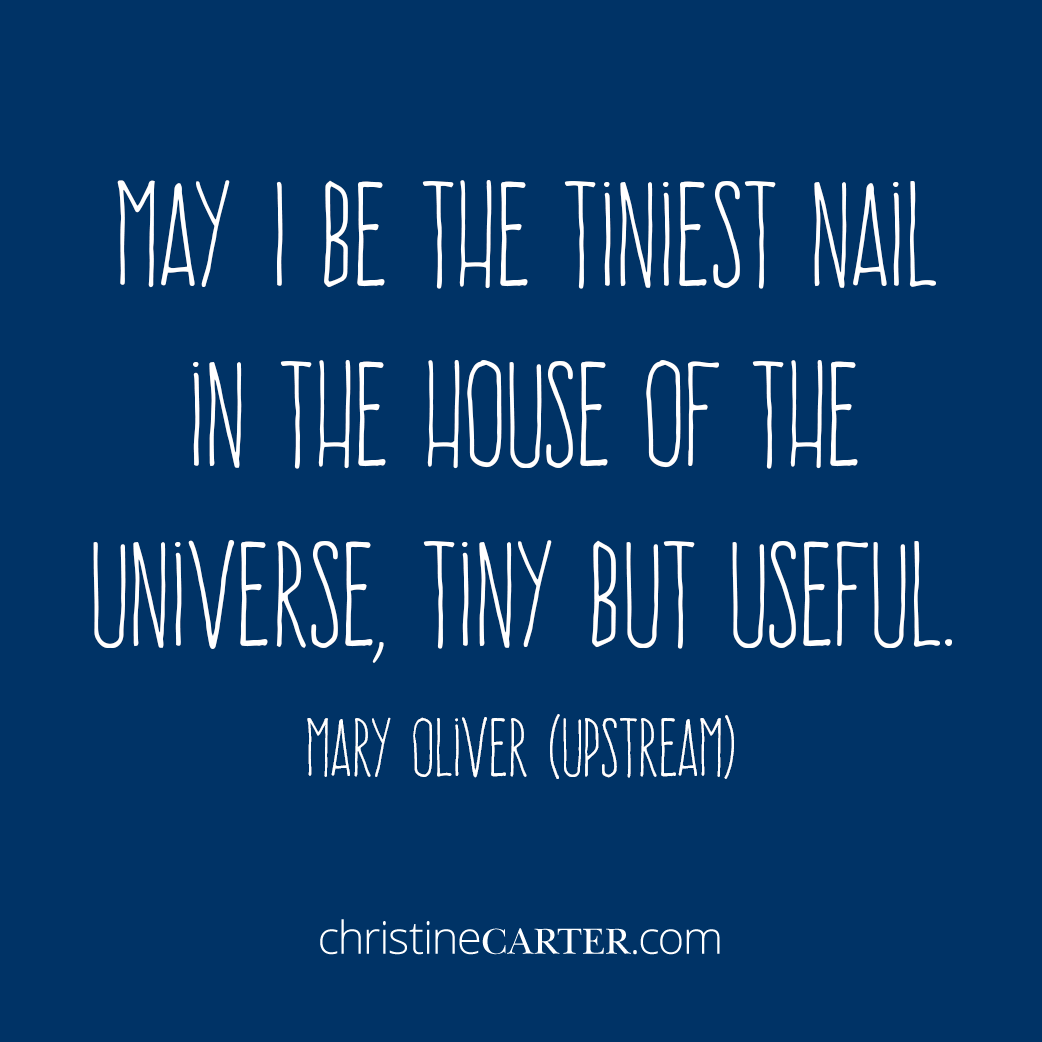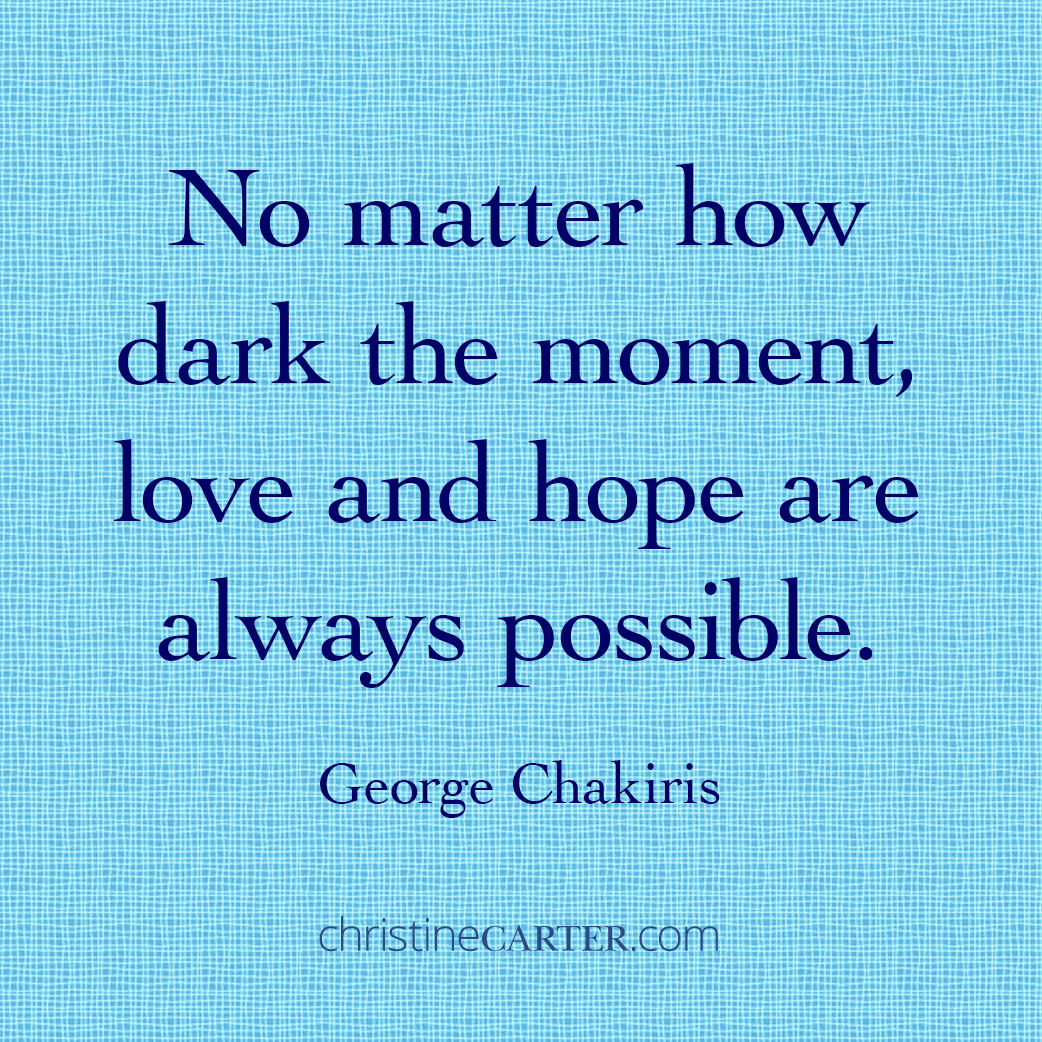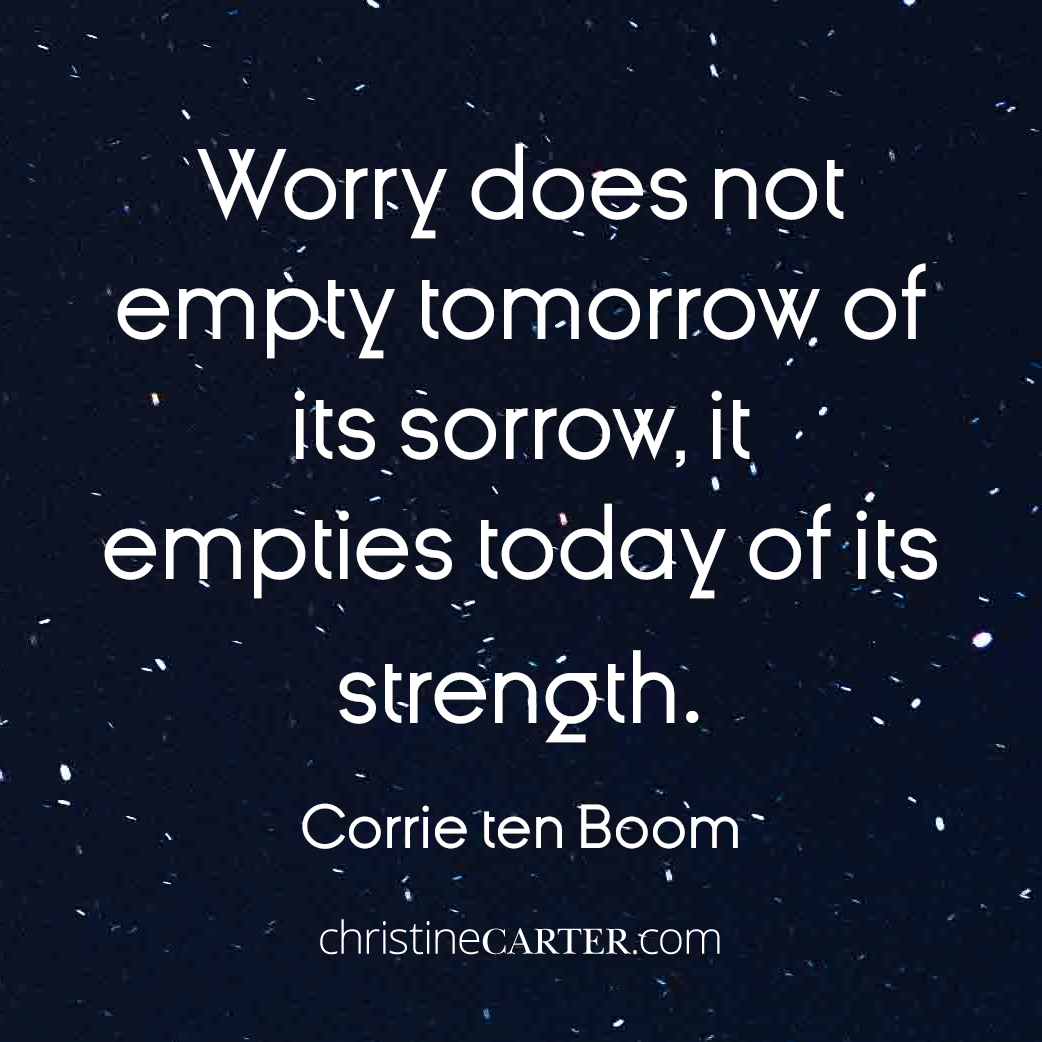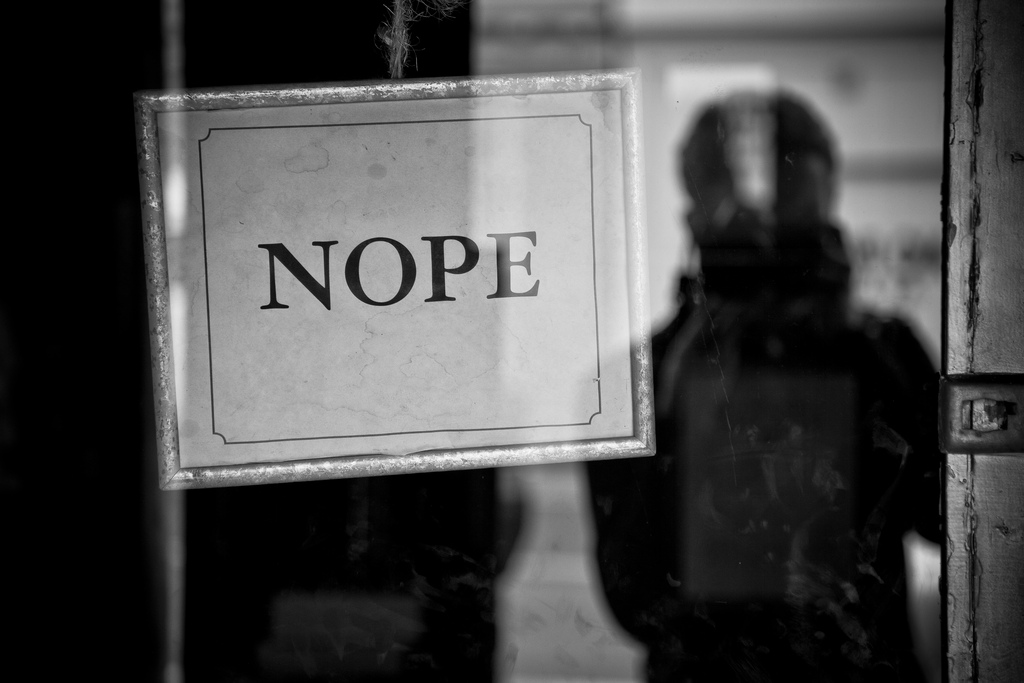If you are humble nothing will touch you, neither praise nor disgrace, because you know what you are.
—Mother Teresa

If you are humble nothing will touch you, neither praise nor disgrace, because you know what you are.
—Mother Teresa

Last week, one of my teens was sitting in the kitchen replying to her emails while I prepped dinner. “Help me write a really good excuse,” she asked. A teacher had asked her to speak at a school function that she didn’t want to be involved in.
“Just write, ‘I’m honored to be asked, but I can’t help you this time,’” I suggested. This turned out not to be so helpful.
“MOM. Please. That will not work. I need to say why I can’t do it.” I walked around the island to look at her email. She had typed not one but two paragraphs detailing why should couldn’t go. Nothing she had written was exactly true.
Even though she wasn’t interested in attending, she hadn’t really said no; it was as though she was trying to paint a picture of a life so disastrously busy that her teacher would have no choice but to retract his invitation.
It can be really hard to say no. Teenagers, especially, want to be liked. They don’t want to disappoint us or their friends or their teachers. But they often don’t know how to say no, and so they find themselves hemming and hawing – and often saying yes instead.
The ability to say no is a critical life skill, and one that our kids probably won’t learn without explicit instruction and practice. We adults tend to emphasize that kids should “just say no” to the big things – sex and drugs and anything that might kill them. But if they can’t confidently decline an invitation or choose not to do someone a favor, how will they say no when it matters more?
Here are some ideas for teaching kids to say no that have worked for me:
Saying no is easier when we’re clear about our priorities; it’s even harder to decline a request when our reasons for doing so seem unimportant. My daughter has a lot going on this semester that’s more important than her teacher’s event. She needs to be careful about what she commits to on school nights. Saying, “I’m not that interested” seemed selfish to her. But it was also true for her to say, “I’m sorry to disappoint you, but I’m already committed to something else that evening.” What was she committed to? It didn’t need to be anything more than completing her homework and getting to bed at a decent hour.
Even though this response was vague, it was the truth. Untrue excuses and white lies lead to further entanglements and greater stress.
Telling the truth is not the same as sharing more details than are necessary, even if someone asks why you can’t help them out or come to their party. Detailed explanations imply that the other person can’t handle a simple no – or that the kids need help working out their conflicts.
When teens make a specific plan before they are confronted with a request, they’re far more likely later to act in a way that’s consistent with their original intentions.
Something simple – like saying, “That doesn’t work for me this time” – is almost always sufficient. But kids will need to come up with something they would feel comfortable saying. Help them pick a default way to say no, and then help them practice saying it before they need it. Here are some ideas:
Research shows we often choose what is most satisfying in the present rather than what will make us happiest in the future – and pleasing others by saying yes can be far more pleasant in the present than saying no.
We can help kids make better decisions by encouraging them to picture themselves moments before the event in question (or in the aftermath of, say, not having enough time for homework or sleep). Would they be relieved if it were canceled? If so, encourage them to say no now so they don’t find themselves trying to weasel out of it later.
If their “no” isn’t accepted with grace, help them practice repeating their refusal calmly, using the same words. This will help the other person see that they are sticking to their “no,” and that their pestering isn’t changing their answer. If that doesn’t work and they need something else to say, encourage them to express empathy. For example, they could say, “I understand that you are in a tough spot here,” or, “I know this is hard for you to accept.”
If the other person still won’t back down, teens can share how they are feeling. For example: “I feel uncomfortable and a little angry when you continue to ask me even though I’ve declined.” Have them focus on their emotions – how the other person’s refusal to accept their honest decline is making them feel – and not the logistical details or logic for their refusal. (This takes a good deal of courage, to be sure. Even thinking about this is a step in the right direction.)
My kids have permission to use my husband and I as an excuse when they are having a hard time saying no. We can always easily tell when they’re asking for permission to do something they don’t want to do. When this happens, we’ll often clarify how they feel. (“Do you think it’s a good idea to go to that concert?” Or, “How badly do you want to help out with that?”) Then when the response comes back lukewarm, we’ll put the hammer down. Very occasionally, the kids will indicate to us that they need us to say no firmly and within earshot of their friends or in a text that they can show their friends. We’re happy to provide this service; they don’t always have to do the hard work of saying no on their own.
Finally, if kids are still feeling nervous about saying no, have them take a moment to call to mind the respect they have for themselves and how they’d like others to respect them as well. It takes courage to consider your own needs and priorities along with the needs of others. But it’s worth it. In the long run, the ability to say no is a little-known key to our kids’ happiness.

“May I be the tiniest nail in the house of the universe, tiny but useful.”
-Mary Oliver (Upstream)

“Our coaching calls are really fun and valuable. I love them! I don’t LOVE talking on the phone but it turns out that I LOVE LOVE listening to interesting phone calls!”
“I’m feeling less stressed, and more like I’m living my priorities.”
“I believe all the changes I have made will be lasting and that the insights I’ve gained will be a foundation for further growth.”
If you’re intrigued, now’s the time to join us, as you’ll get two themes for the price of one. September’s class materials and three call recordings will remain online until the end of October. (October is dedicated to integrating the concepts we learned on our September calls.)
The November theme, “Being Brave Over Perfect,” will dig a little deeper into the perils of perfectionism and people pleasing. Call topics:
We’ll talk about how we often need to muster considerable courage to lead our most authentic lives—and work together on just how to do that.

“No matter how dark the moment, love and hope are always possible.”
— George Chakiris

The good news is that there are many secrets to happiness. But some keys to happiness are much more powerful than others, and the more powerful ones tend to be more surprising, as well.
I’ve studied the science related to happiness and positive emotions for more than a decade. A little over a year ago, I took a step back from the research to determine which happiness tips were the most powerful for my coaching clients, and in my own life.
What emerged was a list of real-life keys to happiness that I had never really blogged or written about, and that my colleagues haven’t been teaching or talking about.
I was so surprised! (And truly glad to be surprised! I can only tell people to practice gratitude so many times before we all start looking for something new.)
In any case, I’m going to share my 3 Surprising Happiness Tips in a quick, free webinar I hope you will join us! Register now here.

We get overwhelmed. We have trouble saying no. We take care of others before we take care of ourselves. We question our careers, our parenting, our marriages, and our priorities. We check our phones constantly (and eat junk food and drink wine and stay busy and otherwise numb our feelings). And then we feel like we aren’t good enough.
We want to be seen by people who “get” us. We want to do meaningful work. We want amazing relationships with our spouses, our friends, and our children. We want the peace that comes with acceptance and self-compassion and self-care. We want to enjoy the small moments. We want to focus on what’s important. Most of all, we want to enjoy this life that we’ve worked so hard to create.
We want all this even though life is hectic and uncertain, even though we are not always (or ever) in control.
Great news: Everything we want is within reach.
Brave Over Perfect Coaching is an effective and affordable way to learn how to live with more courage, acceptance, joy, presence, self-compassion, gratitude, and authenticity.
Life is hectic and uncertain. You don’t have to be.
I’ve seen coaching massively change people’s lives in a very short period of time. I am trained as both a coach and, importantly, I have a PhD in sociology. This means that all of my coaching tools are evidence- and research-based.
People often ask: “Isn’t coaching expensive? And time-consuming? And difficult? And isn’t your waitlist like 50 people deep?”
Yes, individual coaching is expensive, and it can be hard and time-consuming. But there is absolutely no reason that coaching has to be 1-on-1. Group coaching is inexpensive, fun—and it is often even more effective.
Why?
It’s so much easier to see what other people need to fix—and to give them advice—than it is to address our own blind spots. From there, it’s a much shorter leap to taking our own advice.
Brave Over Perfect Coaching is only $20 for three group coaching calls per month + an online community of like-minded people + a ton of online resources. (!!— For reference, my individual coaching—without the community and additional resources—is $250/hour.) Calls occur every other month (September, November, January, March, May, and July), to give you a chance to integrate what you’ve learned before jumping into coaching again.
Fall is here.
Let it be more than just hectic this year.
Let it be authentic, joyful, and fulfilling.
I hope you’ll join us! Our next live call is on November 8.
Warmly,


Worry does not empty tomorrow of its sorrow, it empties today of its strength. –Corrie ten Boom

Yesterday, a friend asked me if she could borrow my car to run a long-distance errand because my little car gets better mileage than her big one. I wanted to say “no”; switching cars on an already busy day felt like a hassle to me. But I didn’t say no. Instead, I hemmed and hawed and hesitated, hoping she’d get the hint.
It can be really hard to say no. Despite my best attempts not to care what other people think of me, I still find myself wanting to be liked. I don’t want people to think I’m selfish. More than that, I don’t want to be selfish. And I never want to miss easy opportunities to help someone out.
But we human beings will often choose what is most satisfying in the present rather than what will make us happiest in the future—and pleasing others (and thinking of ourselves as generous) by saying “yes” tends to be far more pleasant in the present than saying “no.” But saying yes when we want to say no tends to bite us later, in the form of resentment and exhaustion.
We can make better decisions by picturing ourselves moments before the event in question. Would we be relieved if it were canceled? If so, we’ve gotta say no now so that we don’t find ourselves trying to weasel out of it later. Here’s how.
When we are stressed and tired, we tend to act habitually. Knowing this, we can train our brain to habitually say no rather than yes to requests by rehearsing a go-to response when people ask us for favors. Research shows that when we make a specific plan before we are confronted with a request, we are far more likely later to act in a way that’s consistent with our original intentions.
Something simple—like, “That doesn’t work for me this time”—is almost always sufficient. (See this post for 21 more ways to say no.) Pick a default way to respond when you don’t want to do something, and practice saying it before you need it.
Saying no is easier when we’re clear about our priorities; it’s even harder to decline a request when our reasons for doing so seem unimportant.
I could see that if I had to switch cars with my friend it was going to screw up my whole morning, and it would mean that while I could make it to my meeting in time, I would not be able to take the dog for a morning walk. “I won’t be able to walk the dog,” would have felt like a weak explanation. But walking the dog is my favorite part of my morning, and I count on it to get centered for the day. So, it was also true for me to say, “I have plans in the morning which would make it hard for me to switch cars with you tomorrow.”
Note that even though I was being vague about my plans, I was telling the truth. Untrue excuses and white-lies lead to further entanglements and greater stress. Lying sends your unconscious the message that there’s something wrong with saying no—but there’s not.
Be honest, but don’t be afraid to be vague. Telling the truth is not the same as sharing more details than are necessary, even if someone asks why you can’t help them out or come to their party. Detailed explanations imply that the other person can’t handle a simple no—and they often lead to people solving your conflicts for you, when you don’t really want them to.
If your “no” isn’t accepted with grace, persist. Repeat your point calmly, using the same words. This will help the other person see that you are sticking to your no, and that their pestering isn’t changing your answer. If that doesn’t work and you need something else to say, express empathy. For example, say, “I understand that you are in a tough spot here,” or, “I know this is hard for you to accept.”
If they still won’t back down, tell them the truth about how you are feeling. For example: “I feel uncomfortable and a little angry when you continue to ask me even though I’ve declined.” Focus on your emotions—how their refusal to accept your honest answer is making you feel—and not the logistical details or logic for your refusal.
Harvard psychologist Dan Gilbert has famously shown that when we can change our mind, we tend to be a lot less happy with our decisions. So, once we decline an invitation, we need to make an effort to focus on the good that will come from saying no, not the regret or guilt we might feel. Perhaps we will be better rested because we didn’t go to a party, or we’ll feel less resentful because we let someone else help out. Maybe saying no to one thing frees up time for another (more joyful) activity.
Say you are thinking of missing your monthly book club because you aren’t interested in the book. Send your RSVP as a definitive no, not a “maybe.” And then immediately turn your attention to all the time you just freed up for yourself. What do you get to do now instead?
This strategy can be a great tool for offsetting the fear of missing out. The brain reacts to potentially missing out on something in the same way it would with an actual loss. By focusing on what we gain by saying no, we keep our brain from perceiving loss.
If you are feeling nervous about saying no, take a moment to call up the respect for yourself that you’d like others to feel for you. It takes courage to consider your own needs and priorities along with the needs of others. But it’s worth it. In the long run, the ability to say no is a little-known key to happiness.
Need more help saying no? Sign up for Christine Carter’s monthly email list (that’s right: it’s only one email per month) to receive notifications of new columns.

It’s a bit embarrassing to have been concerned with the human problem all one’s life and find at the end that one has no more to offer (by way of advice) than this: Try to be a little kinder. –Aldous Huxley